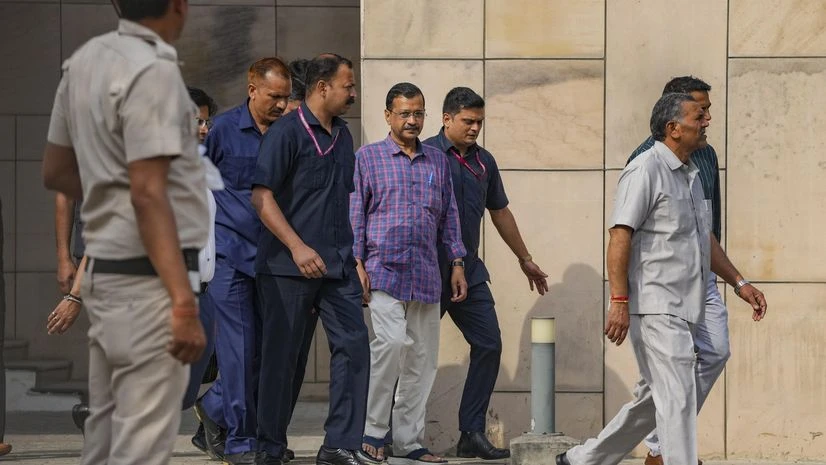Additional Solicitor General (ASG) SV Raju, representing the Enforcement Directorate (ED), stated on Monday, April 1, that Delhi Chief Minister Arvind Kejriwal, who was arrested in connection with a money laundering case linked to the now-scrapped Delhi excise policy, was not cooperating with the investigation.
"Arvind Kejriwal's conduct has been totally non-cooperative and he has tried to mislead the interrogation. He said Vijay Nair does not report to me but to Atishi. Kejriwal is not sharing the password for his phone," SV Raju was quoted as saying by Bar and Bench.
During the hearing, when Special Judge Kaveri Baweja questioned the relevance of the arguments to the application for judicial custody, the ASG replied, "We reserve the right to seek his ED custody at a later stage."
AAP ministers Atishi, Saurabh Bhardwaj and Arvind Kejriwal's wife Sunita Kejriwal were present in the court during the hearing, news agency PTI reported.
Meanwhile, legal representatives of Arvind Kejriwal submitted a request for his access to three books during his time in jail: the Bhagavad Gita, Ramayana, and How Prime Ministers Decide. Additionally, they sought approval for a special diet and the possession of a religious locket.
Following this, the Rouse Avenue Court ordered Arvind Kejriwal to be sent in judicial custody till April 15 in the excise policy-linked money laundering case.
More From This Section
Arvind Kejriwal was brought before the court as his ED custody concluded on Monday, April 1.
Addressing reporters before his court appearance, Kejriwal stated, "Whatever the prime minister is doing [referring to his arrest] is not good for the country."
Arvind Kejriwal was arrested by the ED on March 21 in connection with the case. Subsequently, Judge Baweja remanded him to ED custody till March 28. Following this, the court allowed the ED's plea requesting an extension of his custodial interrogation by four days till April 1.
In its application for remand, the investigative agency has alleged the involvement of the AAP leader in the entire conspiracy of the Delhi liquor scam, including the formulation and execution of the policy, favouring and benefiting from quid pro quo arrangements, and ultimately using part of the proceeds of crime generated out of the scheduled offence in the election campaign for Goa Assembly elections.

)
